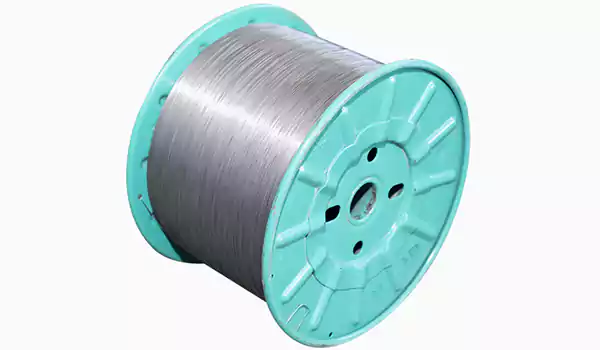
Picking the most suitable metal tubing for your task requires knowing its measurements and intended functions. Common specifications include material type, wall thickness, length, and tolerances. Considerations like maximum pressure, thermal endurance, and rust protection determine pipe suitability across industrial, commercial, and home settings. Piping systems are used in erection projects, manufacturing plants, infrastructure networks, water and gas delivery, waste removal, framework support and tailored industries
- Understanding the project's exact requirements is vital to select the correct pipe
- Consult industry standards and codes for detailed guidance on metal pipe specifications
- Determine material selection through pressure ratings, temperature tolerance and corrosion concerns
Structural Tube Steel: Sturdiness, Lifespan, and Adaptability
Drawn steel tubes are celebrated for their load-bearing power and are commonly used in industrial, structural and commercial applications. Exceptional longevity stems from production methods like seamless drawing or welding. Constructed by processing steel feedstock into tubes via drawing or welding, they give robust corrosion and wear protection and lasting service in difficult environments. Versatile tube steel can be fabricated into broad ranges of profiles—from standard tubes to complex geometries—for bespoke applications. Used across heavy infrastructure, architectural frameworks and complex mechanical assemblies, tube steel's resilient strength, extended durability and versatility make it a cornerstone of modern industryPerforated Metal Mesh for Elevated Security and Safety
Expanded metal mesh is regularly selected for roles that require durable security and increased safety precautions. With an open-cell design it maintains visibility and forms a deterrent against access and potential threats. Adjustable aperture sizes and thickness choices allow the mesh to be tuned to project needs
- Expanded metal mesh's durability resists impact, vandalism and severe weather
- What's more, effortless installation and low-care needs boost its usage across different domains
- Used to secure vital infrastructure and protect workers in industrial settings, expanded metal offers comprehensive protection
Commercial and Industrial Uses for Metal Mesh
Metal steel mesh is widely applied across industrial uses because of its strength, durability and flexible performance. It establishes a durable structure applicable to filtration, screening, reinforcement and protection tasks. Concrete structures often employ steel mesh reinforcement to bolster tensile strength and lessen cracking tendencies. Moreover, steel mesh serves in bridge works, tunnel linings and other civil projects to provide support and load distribution. Manufacturing processes rely on steel mesh for screens and filters because the tightly woven structure effectively separates materials by size for sorting and purification. Steel mesh is applied in protection systems—guardrails, fences and cages—to deter entry and safeguard personnel. Thanks to strong tensile properties it tolerates impact and force, making it appropriate for demanding protective duties
Structural Applications of Metallic Pipes
By virtue of their strength, metal pipes function as vital elements in many structural implementations. Their formability aids in producing resilient frameworks capable of supporting load-bearing applications across sectors. In skyscrapers, bridges and underground piping networks, metal pipes supply essential backbone support and cope with tough environmental loads. Corrosion protection and ability to be readily formed enhance their significance in contemporary building practices
Deciding on Tube Steel for Your Project
During construction or fabrication planning, picking the right tube steel is fundamentally important. Tube steel combines strength, longevity and lighter weight, making it fit for various applications. Although tube steel is versatile, the number of grades and specs can make selection challenging
- Ensure success by evaluating purpose, load demands and site conditions
- Wall gauge, diameter size and material specification substantially determine tube steel behavior
Use thick-walled, high-yield tube steel for heavy structural tasks and thin-walled, lightweight steel for delicate, low-load applications
Work with qualified engineers or reliable suppliers to select the correct tube steel for your project
Benefits and Advantages of Expanded Metal in Construction
Expanded metal offers a set of practical and effective benefits for the construction industry. Its lightweight nature eases installation and reduces labor costs. hot-rolled steel plate Additionally, the open design improves ventilation and drainage which mitigates moisture buildup. Robustness ensures it is appropriate for demanding, high-resilience usesComprehending Pipe Joint Types
Pipe connections form essential parts of plumbing and piping setups, enabling the transfer of fluids and gases. Selecting an appropriate joint is determined by diameter, substrate, rated pressure and intended use. Frequent connection types are threaded, flanged and welded joints, providing different levels of strength and sealing. Threaded connections use male and female threads that are screwed together, flanged connections use bolted flat faces, and welded connections permanently join pipes with heat and pressure. Knowing connection features helps in creating a properly performing, leak-resistant piping networkVersatile Home Project Uses for Steel Mesh
The metal mesh is tough, durable and multipurpose, lending itself to many DIY projects. Because of its open interconnected pattern it works well for fences, screening panels and decorative accents. Furthermore, its light weight and workability make it favored by beginners and seasoned DIYers alike
- Think about using metal mesh for your next craft or build
Steel Pipes: Sanitation to Structural Uses
Metallic pipes underpin modern construction and infrastructure with a balance of strength, durability and versatile use. Originally used mainly for plumbing and sanitary systems, metal pipes have evolved to play major roles in structural reinforcement and support. From structural foundations to pipelines for water and gas, metal pipes contribute vital operational roles within modern systems. Strong material properties let them handle large pressures and forces while corrosion protection maintains long-term reliability. Also, the ease of forming allows pipes to be configured in many shapes to meet divergent application demands
Design Flexibility and Functionality of Expanded Metal
Expanded metal provides creative design flexibility along with dependable functional use. Open construction suits both creative architectural treatments and functional industrial safety installations. Because it is strong, expanded metal can handle significant loads while remaining visually attractive
- Moreover, expanded metal's open structure boosts ventilation and supports applications requiring heat dissipation
- Expanded metal serves diverse fields such as construction, manufacturing, transportation, automotive and decorative arts